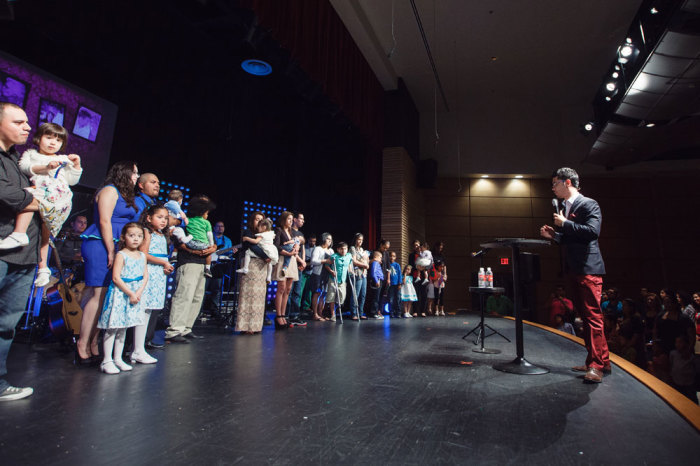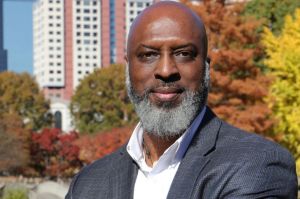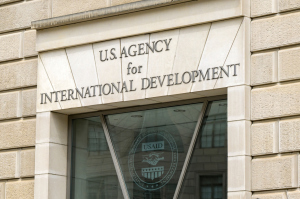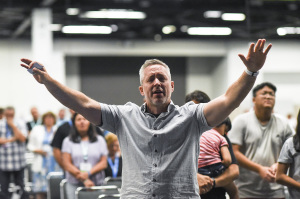Interview: 23-Year-Old Hispanic Pastor on How Latino Evangelicals Are Shaping America

Hispanics are emerging as a major player in the evangelical community as well as society as a whole in America with some 52 million Latinos making up the largest ethnic minority in the U.S., according to a 2011 U.S. Census Bureau report. While the majority of Hispanics is still traditional Roman Catholic, there has been a profound shift in numbers favoring born again Hispanic Christians. Now, evangelicals account for about 35 percent of the Latino population, according to the Pew Hispanic Center, and that number is expected to grow. A study conducted by the Pew Forum on Religion and Public Life predicts that while more than two-thirds of the 52 million Latinos in the U.S. are Catholics now, that number could decrease by half by 2030.
Pastor Josue Urrutia of Ministerio Mizpa in Arlington, Va., who at age 23 is the youngest board member of the National Hispanic Christian Leadership Conference (NHCLC), talked to The Christian Post last week about the influence of Latino evangelicals on American religion and politics, as well as the growth of evangelical Hispanics in the nation.
CP: How are Hispanic churches transforming the way America views faith?
Urrutia: Two of the main characteristics of Hispanic churches are the diversity and variety within them. Because we come from different sub-cultures such as Mexico, Colombia, and Puerto Rico, our worship can range with music from Mariachi, to Vallenato, to Salsa. The Hispanic church has come to show America that faith doesn't have a color, language, or style, but rather faith transcends all cultural barriers.
CP: What do you think has caused such an increase in evangelical Hispanics?
Urrutia: The growth of more than 52 million Latinos itself, and since over 35 percent of them are considered to be born again, these numbers have a voice. The Christian Hispanic voice is one gaining momentum and being heard across the nation from the pulpits on Sundays to the halls of Capitol Hill.
CP: How is your church contributing to this large scale shift?
Urrutia: As a church we are able to deliver God's message of hope in a new way without having to compromise the message of the Gospel and its values. We constantly remind our church we are different because we are trying to reach a different demographic that has been un-churched. This has allowed us to see families of up to four generations attending our church because the children brought their parents and the parents their grandparents and so forth.
CP: Would you describe this trend as a modern day evangelical revival?
Urrutia: A revival is restoring something back to life and in a nation where we have done a great job to empower minds but very little to empower hearts, I do believe this is a modern day revival and the Latino Evangelical movement is helping bring a lot of forgotten values back to life.
CP: How are Hispanic Christians shaping the role of our country's politics?
Urrutia: Hispanics are shaped by the values learned in "casa" from "mama y papa" so they grow to be strong and pass them on from generation to generation. While some may think immigration is the main political concern for Hispanics, it isn't the only one. Although 65 percent of all Hispanics agree that they have a biblical responsibility to show hospitality to strangers and immigrants, 66 percent also agree with the traditional definition of marriage, and 63 percent of Hispanic Evangelicals believe abortion should be illegal in almost all cases. These major political issues are rooted in the hearts of the Hispanic community and with its growing population this is a voice that cannot be ignored.
CP: As a young pastor in the Washington D.C. area, have you seen a change in increased church attendance among youth?
Urrutia: Unfortunately only 21 percent of Hispanics believe that churches in their community are doing "very well" at influencing Hispanic youth. We have churches that are well suited to reach first generation Latinos but the disconnect lies in reaching second generation Hispanics who have been raised in this country. However, I am happy to see how this movement of innovative, Hispanic-led churches is rising to be culturally relevant to this new generation.
CP: As the youngest board member of the NHCLC, how has your role contributed to being a voice for the Hispanic church today?
Urrutia: As a young Hispanic pastor, I hope I can only bring a young and fresh perspective to the rising Joshua generation that doesn't consist of an age range but rather a kingdom mentality. I am well aware that the influence God is placing over my life is not to make my name or our churches name great but rather His name and to further advance his kingdom agenda, The Lamb's Agenda!
CP: The majority of prominent Christian leaders in the U.S. are non-Hispanic. How can young Latino evangelical leaders change that?
Urrutia: I always say great change in the world begins with great change within an individual. If we can change ourselves to inspire change in others, to then inspire our community, as a community we can inspire an entire city, and then the nation, so in essence, we could possibly change the world.





























